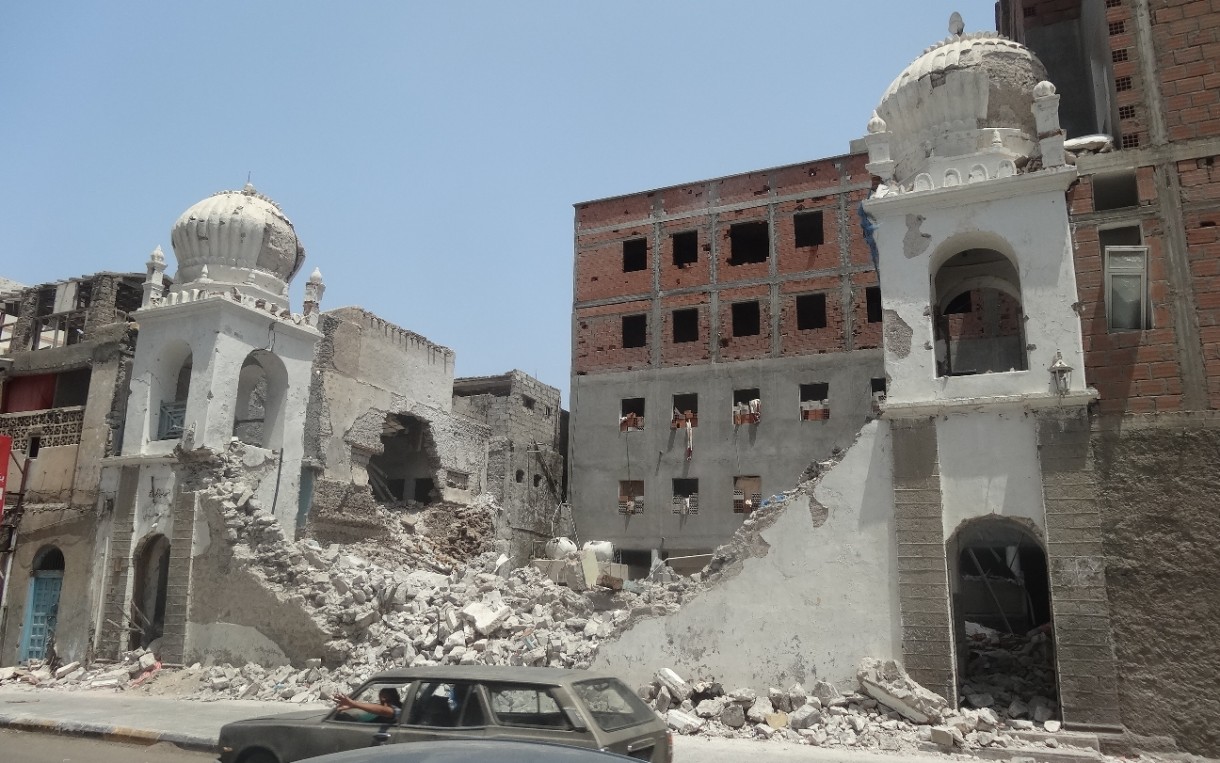The US is about to enable more suffering in Yemen. Congress can stop it.
 Aden has witnessed severe ground fighting since April, and its residents were cut off from fuel, food and medical supplies for months. As a result, some of Oxfam's operations were suspended there, but we continued to work with local water authorities to ensure clean water was pumped to nearly a million people in and around Aden. The situation quieted down in August and aid organizations were able to go in and deliver vital supplies to people previously trapped in the city. Photo: Mohammed Taleb / Oxfam
Aden has witnessed severe ground fighting since April, and its residents were cut off from fuel, food and medical supplies for months. As a result, some of Oxfam's operations were suspended there, but we continued to work with local water authorities to ensure clean water was pumped to nearly a million people in and around Aden. The situation quieted down in August and aid organizations were able to go in and deliver vital supplies to people previously trapped in the city. Photo: Mohammed Taleb / Oxfam
The chance of peace talks offers a glimmer of hope for the 14.4 million people in Yemen who are in need of aid.
Scott Paul is a Senior Humanitarian Policy Advisor at Oxfam America.
More than four out of five people in Yemen are in need of aid. More than half – 14.4 million people – don’t have enough to eat. 522,000 pregnant mothers lack access to basic healthcare. You wouldn’t know it from the lack of news coverage, but there are more people in need of humanitarian assistance in Yemen than in any other major crisis today.
All of the parties to the conflict in Yemen bear some responsibility for creating this nightmare. Last year, Ansar Allah led an insurgency that seized control of the capital and much of Yemen’s territory. In response, a coalition led by Saudi Arabia and supported by the United States launched a military campaign and blockaded parts of the country. The conflict has fueled both hunger and violence. Human rights organizations say that all parties, including the coalition, have committed war crimes, and Oxfam workers have seen the terrifying destruction that they have caused. Ansar Allah’s current siege of Taiz, Yemen’s third largest city, is putting hundreds of thousands of lives at risk. Over 2.3 million people have been displaced from their homes by fighting, and with little food, fuel, or medical supplies making it through the coalition’s de facto blockade, the situation could become even worse.
If there is a glimmer of hope on the horizon, it’s that peace talks may resume soon. Merely getting agreement to hold the talks has been an achievement. A series of agreed “humanitarian pauses” over the summer failed to materialize, and until recently, the parties have been unwilling to consider a ceasefire, believing that they could better achieve their aims militarily, no matter what the cost to the Yemeni people. Getting the coalition, the Government of Yemen, Ansar Allah, and other parties to agree to negotiations is a significant accomplishment – but this recent progress has been put at risk by the Obama administration’s stamp of approval of the Saudi-led military campaign, in the form of a $1.3 billion sale of bombs and missiles to resupply the Royal Saudi Air Force.
US support has legitimized the continuation of the coalition’s ongoing military offensive and helped to excuse its abuses. After Saudi Arabia was accused of killing 130 people at a wedding party in September, Saudi Foreign Minister Adel al-Jubeir explained, “We work with our allies including the United States on these targets.” Saudi Arabia is not alone in violating the laws of armed conflict in Yemen; all those involved in the fighting have exhibited a shocking disregard for civilian life. However, given its leadership of the coalition and close relationship with the Government of Yemen, Saudi Arabia’s approach to the coming negotiations will play a major role in determining whether one side of the conflict will come seeking peace or to enhance its position through additional fighting.
Leading up to the talks, the US has said all the right things – insisting on the free flow of commercial goods, urging a political settlement based on negotiations without preconditions, and calling attention to the dire humanitarian situation. A huge arms sale to Saudi Arabia sends an entirely different message. It gives a green light to indefinite military intervention, substantially relieving the pressure on the coalition and the government of Yemen to sign up to an urgently needed ceasefire.
Take Action:
More ppl in need of aid in #Yemen than in any emergency worldwide. Stopping arms sale is the best way to esnure peace @senbobcorker